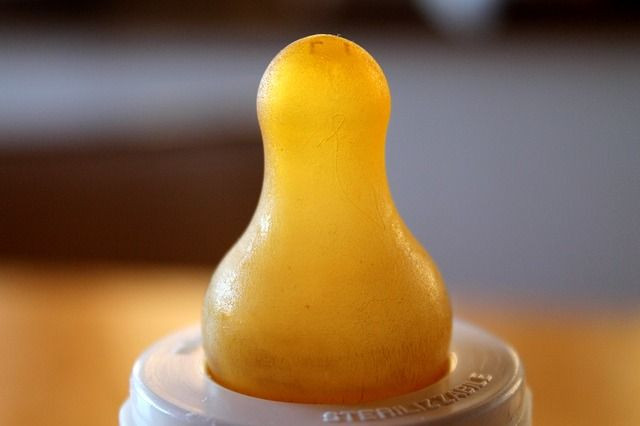World Breastfeeding Week 2016: Baby Formula Vs. Breast Milk; Which Is Better For Children's Health?

New moms are faced with a big decision when it comes to their baby's health: "To breastfeed or not to breastfeed?" Pulling out a bottle of formula or breastfeeding in public can both lead to criticism from onlookers, and inevitably mommy guilt. Breast milk is touted as being "nature's perfect baby food,” but are bottle-fed babies less healthy than their breastfed counterparts?
The American Academy of Pediatrics (AAP) recommends breast milk as the best nutrition for infants. It’s recommended they should be breastfed exclusively for the first six months, and continue well into 12 months, but in reality that’s a goal few women achieve in the United States. The Centers for Disease Control and Prevention 2014 Breastfeeding Report Card found among babies born in 2011, only half of American women breastfed for six months and just 27 percent breastfed for a year.
When breastfeeding is not possible, the best alternative is formula feeding, which can provide a more nutritious option for babies than evaporated milk or cow's milk. Compared to bottle-fed babies, those who are breastfed tend to have less vitamin D supplementation because breast milk contains very low levels of the vitamin. The AAP recommends vitamin D supplementation of 400 IU per day — which helps babies absorb calcium and phosphorus, nutrients necessary for strong bones — for all breastfed babies and those who are drinking less than 1 liter a day of formula.
An infant’s long-term health is not influenced by whether or not they’re breastfed. A 2014 study published in the journal Social Science & Medicine found breastfed children were no more likely to be healthier nor more intelligent than bottle-fed children. Researchers look at siblings, where at least one child was breast-fed and at least one child was not, while measuring outcomes previously shown to be impacted by breastfeeding, such as body mass index, asthma, and intelligence and scholastic competence, among others. Siblings fed differently did not show any statistically significant benefits, with the exception of those breastfed. They faced a higher risk for asthma, although it’s unclear whether those reports were self-generated or actual diagnoses.
These findings may help prevent women who cannot breastfeed from feeling stigmatized. Some women feel they have failed as a mother because of their inability to do so, or feel guilty for switching from breastmilk to formula as the baby gets older. The truth is, formula works just as well as the “liquid gold” human milk.
So mommies, ditch the guilt. Bottle-fed babies are just as healthy as their breastfed counterparts.



























